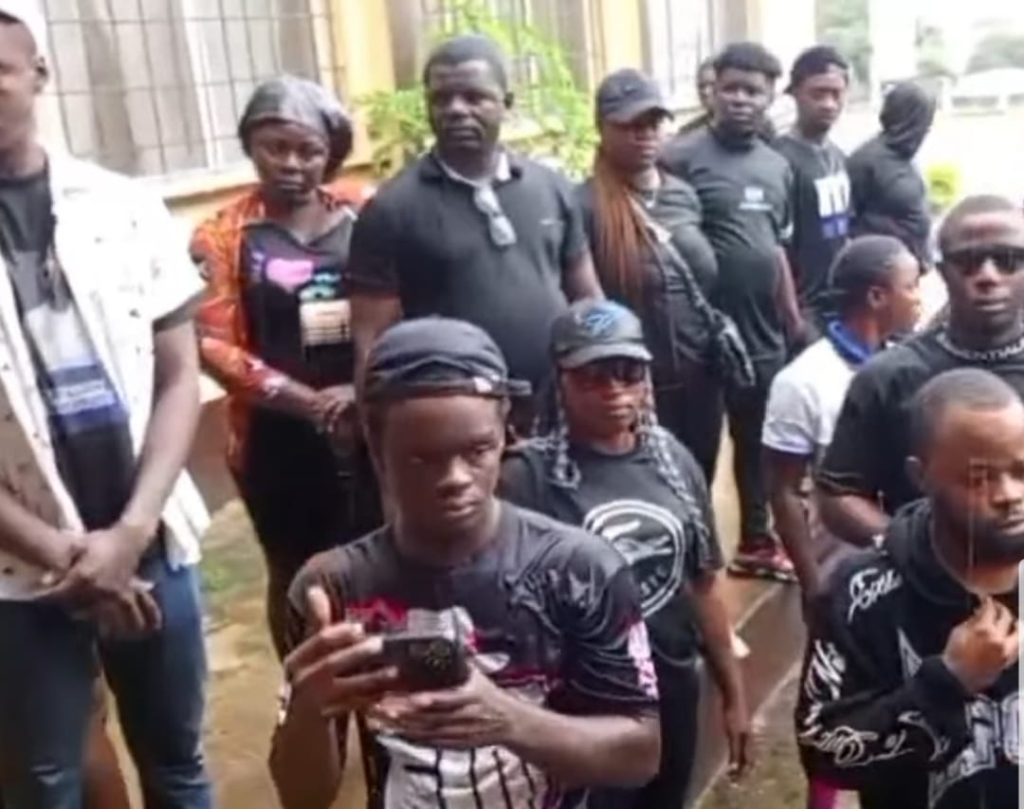The “Say No to Drugs” campaign in Bong County, Liberia, aimed at combating the escalating drug abuse crisis, ironically became embroiled in controversy when some of its members appeared intoxicated while presenting their petition to county authorities. This incident, which unfolded at the Administrative Building in Gbarnga, undermined the campaign’s credibility and sparked widespread public debate. The campaigners’ alleged inebriated state during the formal proceedings overshadowed the intended message of the petition, which sought to highlight the dangers of narcotics and solicit government support in the fight against substance abuse. Bong County Administrative Officer, Sam Baryougah Elliott Sr., expressed his disappointment at the disorganized presentation and abruptly adjourned the ceremony, further fueling public criticism.
The incident highlighted the deep-rooted challenges facing Liberia’s fight against drug abuse, particularly in Bong County, a region identified as a hotspot for the crisis. The public reaction to the incident was divided. Some condemned the campaigners’ conduct, labeling it an embarrassment that trivialized the serious issue of drug abuse. They argued that the campaigners’ alleged behavior contradicted their message, undermining their credibility and potentially discouraging young people from taking the anti-drug message seriously. Others, however, urged the public not to let the actions of a few overshadow the broader purpose of the campaign, emphasizing the urgency of addressing the drug crisis that is devastating Liberia’s youth.
The controversy surrounding the “Say No to Drugs” campaign underscores the pervasive nature of drug abuse in Liberia, with Bong County bearing a significant brunt of the crisis. The increasing prevalence of “zogos,” disadvantaged youth often addicted to narcotics and marginalized from society, has become a major concern for local communities. The Liberia Drug Enforcement Agency (LDEA) has repeatedly warned about the escalating drug problem, highlighting the lack of adequate resources to effectively combat the influx of illegal substances into the county.
The incident also reignited discussions about the role and responsibility of civil society organizations in addressing the national drug crisis. Many argue that while advocacy is crucial, campaigners must maintain credibility and lead by example to gain public trust and effectively influence government action. The “Say No to Drugs” campaign’s misstep served as a stark reminder that a lack of discipline and credibility can undermine the very message being advocated. The public scrutiny following the incident emphasizes the importance of ethical conduct and transparency in advocacy efforts.
The “Say No to Drugs” campaign organizers, though yet to issue an official statement regarding the allegations, reportedly plan to re-submit their petition to the county administration. Despite the controversy, the incident has inadvertently brought renewed attention to the urgent need for a concerted effort to tackle drug abuse in Liberia. Many citizens maintain that the fight against narcotics must remain a top priority, stressing the existential threat the drug epidemic poses to the nation’s future.
While the “Say No to Drugs” campaign faced a significant setback, it also served as a catalyst for renewed public discourse on the drug crisis. The incident underscored the importance of coordinated efforts between government agencies, civil society organizations, and local communities in combating drug abuse. It highlighted the need for adequate resources for law enforcement and rehabilitation programs, as well as the crucial role of public awareness campaigns in educating and empowering communities to resist the allure of drugs. The public debate fueled by the incident emphasizes the urgency of addressing this critical issue to safeguard the future of Liberia’s youth.


